If you’re considering buying a home, it’s important to ask yourself if the property is infested with termites. Termites can cause serious damage to a home, so it’s crucial to be aware of the signs of an infestation and know what to do if you suspect you have them. In this article, we’ll answer some common questions about termites and provide tips on how to deal with them if they are found in your home.
Are Termites Dangerous To Humans?
Yes, termites can be dangerous to humans. They may cause damage to your property and aggravate allergies or asthma. In some cases, they can even spread disease-causing organisms. This is why it’s important to identify the presence of termites in your home and act quickly if you suspect an infestation. [1]
If you think your house has termites present, it’s best to call a professional pest control company right away for advice on how to handle the problem. A licensed technician will be able to determine whether or not there is an active infestation and recommend the best course of action.

In general, however, it is not advisable to try and live in a house with a termite infestation. The presence of these insects can cause serious damage to your property over time, and they can also be a health hazard. So if you suspect termites are present in your home, it’s best to get rid of them as soon as possible.
Do Termites Bite?
Termites may not bite humans, but they can still cause plenty of damage to your home. As termites feed on wood and other cellulose materials, they have been known to attack the structure of a house over time if left unchecked. This can weaken the structure of walls, floors and ceilings and make them unsafe for human occupation. Even if you are able to detect an infestation in its early stages, there is usually some degree of permanent structural damage that will need to be repaired or replaced before living in the home again.
Can Termites in Your House Make You Sick?
When it comes to termites, there’s one thing that most homeowners are worried about: can they make you sick? The short answer is no. Termites do not carry diseases like other pests such as ticks or mosquitoes. However, if left unchecked, the destruction of wood and other materials around your home can create a hazardous living environment and even lead to structural damage.
Mold spores from these sources can cause respiratory problems such as asthma and allergies, especially in people who already suffer from them. So if you’re living in a home infested with termites, it’s important to take steps to eliminate the problem sooner rather than later.
In addition to causing respiratory issues and structural damage, termites can also be indirectly responsible for costing homeowners money. Since they feed on wood and other cellulose-based materials, they can cause considerable damage that may not be covered by your homeowner’s insurance policy.
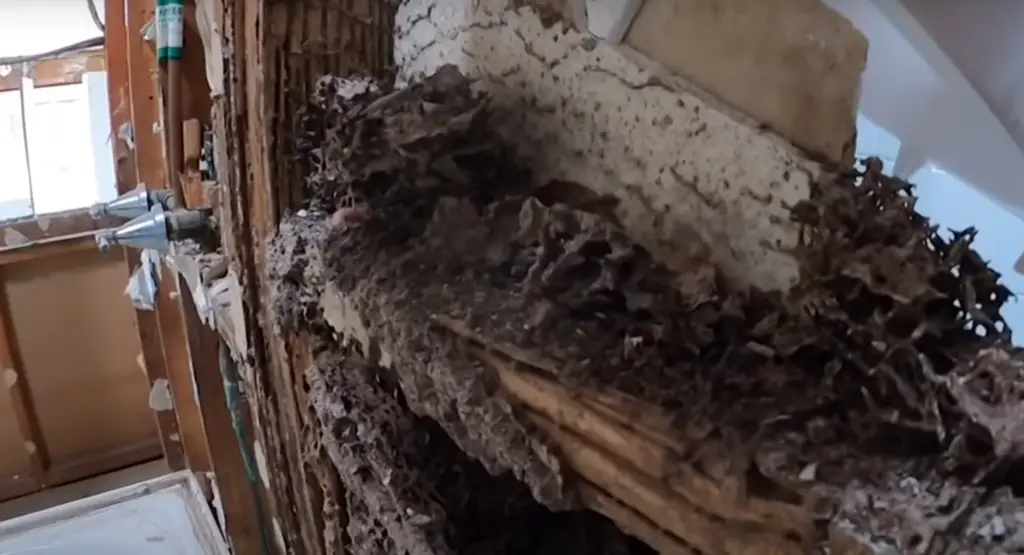
Therefore, while living with termites might seem like an inconvenience or an eyesore at first, it’s essential to remember the hidden costs associated with them as well. Taking action right away is key in order to prevent further damage and save yourself from costly repairs down the line.
Can Termites Cause Health Issues?
Unfortunately, the answer is yes. Some of these include allergic reactions, asthma attacks, and even skin problems. Allergic reactions are caused when you come into contact with small amounts of termite droppings or saliva. Asthma attacks may be triggered by breathing in dust particles that contain traces of termite feces.
Skin allergies and irritation
If you come into contact with a live termite, it’s important to immediately wash your skin with soap and water. This will ensure that any bacteria or allergens on the termite are washed off before they can cause any problems. If you experience itching, redness, or irritation after contact with a live termite, it’s best to consult your doctor right away so they can diagnose and treat the problem accordingly.
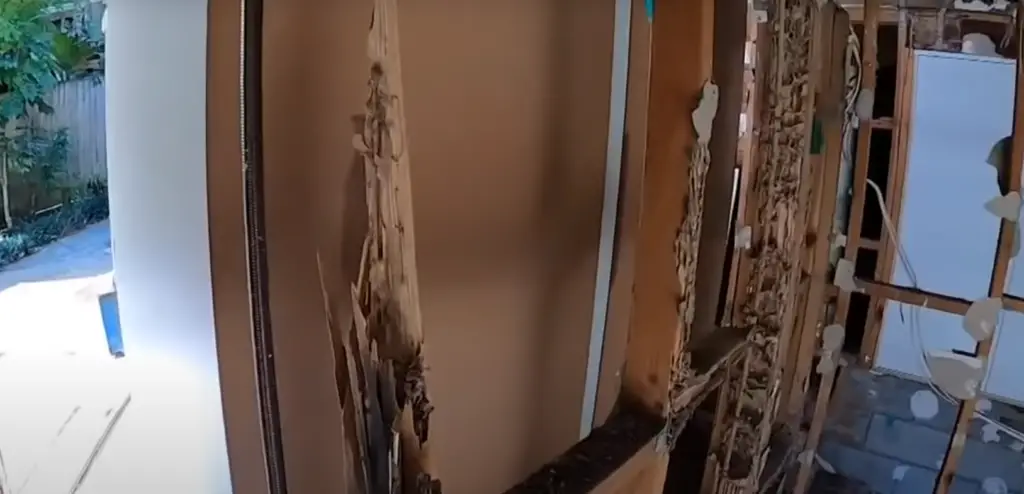
Allergies or respiratory irritation
If you experience any type of allergy or respiratory irritation after coming into contact with termites, it’s important to see a doctor right away. A doctor can perform tests to determine if you’re suffering from allergies, asthma, or some other condition. It’s also important to remember that while these conditions may not always occur, they are more likely to happen if you come into contact with live termites or their droppings and saliva.
Asthma attacks
If you have asthma, it’s especially important to take extra precautions if you live in a house with termites. People with asthma are at an increased risk of experiencing an asthma attack when exposed to dust particles containing traces of termite feces or saliva. To reduce the chances of this happening, make sure that any areas where termites may be living are cleaned regularly and thoroughly. You should also talk to your doctor about possible preventative measures that can be taken to reduce your risk of having an asthma attack due to exposure to termites.
Fungal Infection
Termites can carry fungi on their bodies and when these come into contact with human skin or are inhaled, there is the possibility for a fungal infection to develop. Fungal infections can be difficult to treat, so it’s important to take precautions against exposure to termites whenever possible.
If you experience any signs of fungal infection such as redness, itching, blisters, or other symptoms, consult your doctor right away. They will be able to diagnose and treat the condition correctly so that you have quick relief from any discomfort.
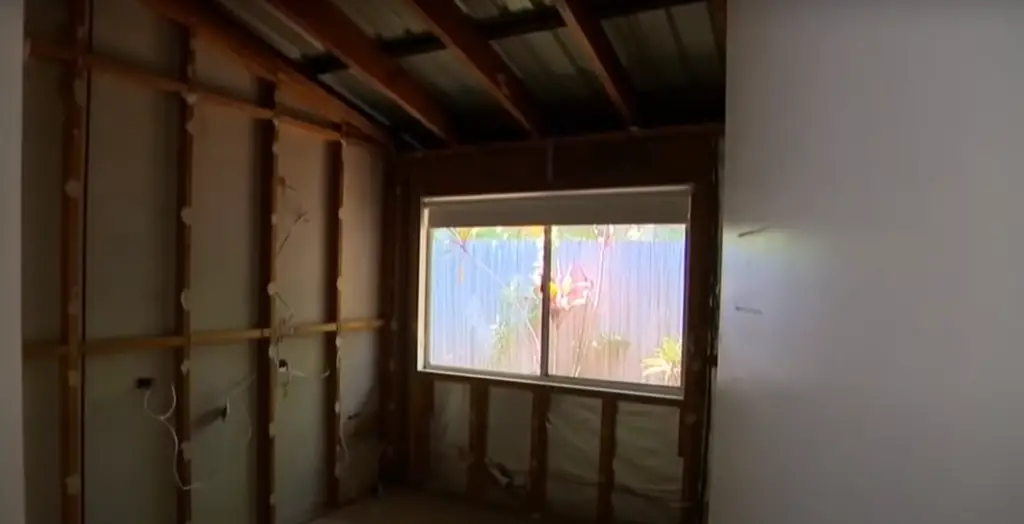
Sick building syndrome (SBS)
Another potential health issue that may arise from living in a house with termites is known as “sick building syndrome” or SBS. This condition is caused by the presence of excessive amounts of formaldehyde and other volatile organic compounds (VOCs) which are released from the wood materials being consumed by the termites. Inhaling these VOCs can cause a range of symptoms including headache, fatigue, dizziness, nausea and respiratory problems. To reduce your risk of SBS it’s important to make sure that any areas where termites may be living are well-ventilated and kept clean on a regular basis. [2]
By understanding the risks associated with living in a house with termites and following proper prevention techniques, homeowners should be able to keep themselves safe and healthy while dealing with these pests. While it may not always be possible to completely eliminate all risk factors associated with termite infestations, it’s important to take the necessary steps to protect yourself and your family from any potential health risks.
Prevention Tips
Although getting rid of termites can be difficult, you can take steps to prevent them from entering your home in the first place. Here are a few tips to protect your house from an infestation:
- Make sure your property is free of wood debris and moisture buildup, as both attract termites.
- Seal any cracks or gaps on windows and doors so they can’t get in.
- Inspect any wooden furniture or items you bring into the home before bringing them inside.
- Have an annual termite inspection conducted by a professional pest control company who can detect early signs of infestations.
- Keep foundation vents closed when not in use; this will help keep termites away from outside walls and foundations.
- If you already have an active infestation, it’s important to contact a professional. They can develop a plan to eliminate the termites and make sure they don’t come back.
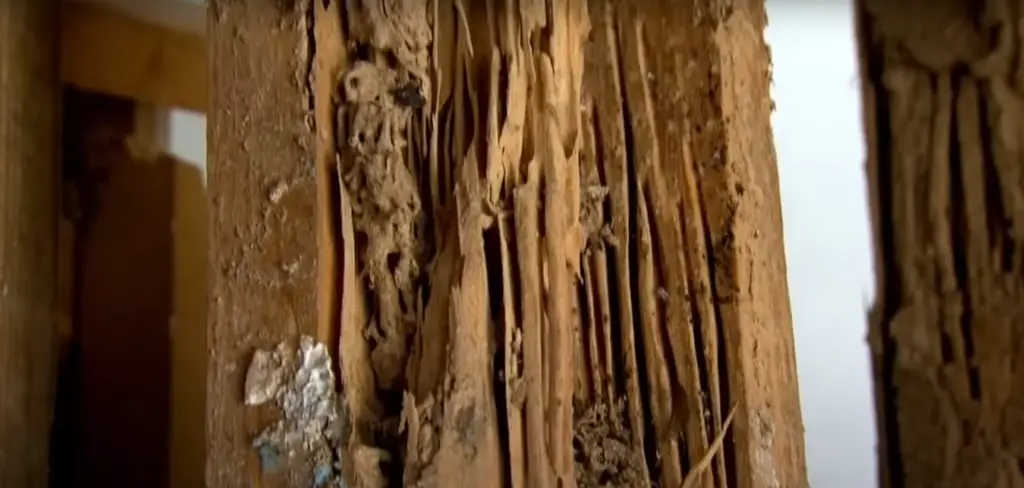
FAQ
Can termites enter the human body?
No, termites do not enter the human body. While some species of subterranean termites can bite and sting humans, they are harmless to us. If you live in a house with termites, it’s important to practice good hygiene and avoid contact with them if possible. [3]
What should you not do with termites?
When it comes to dealing with termites, there are certain things you should avoid doing. Here’s a list of the most important dos and don’ts:
- Don’t try to use DIY treatments. This can be ineffective and cause more damage in the long run. Even if you have some experience in pest control, using professional help is always best when dealing with a termite infestation.
- Don’t ignore the signs of a termite problem. If you see any evidence of activity such as mud tubes, wood dust, or droppings then take action as soon as possible before the infestation gets worse.
- Don’t attempt to remove the termites yourself. This is not only ineffective, but can spread them to other parts of your home as well.
- Don’t forget to do regular inspections and maintenance on your property. Keeping an eye out for signs of infestation and getting a professional pest control service in to check things regularly will help ensure that any problems are dealt with swiftly before they become too severe.
Finally, it’s essential to be aware of the potential long-term damage caused by termites. Even after an infestation has been eradicated, there can still be a significant structural weakness in the affected area. If this is left unaddressed, it could cause more harm down the line. Make sure that any necessary repairs are carried out properly by a professional. [4]
In summary, if you suspect a termite infestation in your home, don’t hesitate to seek help from a qualified exterminator right away. Don’t attempt to tackle the problem yourself and take extra care not to disturb existing nests or introduce additional moisture into the affected area. Finally, make sure any necessary repairs are carried out properly by a professional after an infestation has been dealt with. Taking these steps will help ensure your home remains termite-free for many years to come.
Can you sleep with termites?
The short answer is yes, you can sleep in a house with termites. Termites are mainly active during the day and night, so it’s not likely that you’ll be exposed to them while sleeping. However, if you suspect an infestation in your home, it’s important to take steps to eliminate them before they cause any further damage.
To ensure that your bedroom is free from an infestation of termites:
- Have a professional inspect your mattress and furniture for signs of termite activity;
- Seal any cracks or crevices around doors and windows;
- Keep wood away from moisture sources;
- Reduce humidity inside the home by using dehumidifiers;
- If you notice any signs of an infestation, schedule a pest control visit as soon as possible. [5]
If you’re worried about termite activity in your bedroom, keep the lights on or use a nightlight to help deter them away from your mattress and furniture. Additionally, check regularly for droppings and other signs of activity that may indicate an infestation. While it is possible to sleep safely in a house with termites, it’s important to take the necessary precautions to prevent an infestation from occurring in the first place. The best way to protect yourself is by regularly scheduling inspections and addressing any concerns with a professional exterminator as soon as they arise.
Can living with termites make you sick?
Termites are not known to spread disease, but they can cause serious damage to your home if left unchecked. If you live in an area where termites are present and have chosen to stay in a house with them, it is important to take steps to make sure the infestation does not worsen. Regular inspections of your home should be done by a licensed pest control professional who can detect signs of a potential problem early on.
In addition, there are certain health considerations that need to be taken into account when living with termites. As the insects tunnel through wood, they release dust and other particles that can become airborne. These particles may irritate respiratory systems and eyes, triggering allergies or asthma attacks for those with preexisting conditions.
It is also possible that termites can spread mold. As the insects consume wood, they leave behind moisture and small pieces of wood which can then be colonized by different types of molds. Over time, this mold growth could become more severe, increasing the risk for health issues in those living with it.
Therefore, if you have chosen to live in a house with an active termite infestation, it is important to take measures to protect yourself from potential health risks associated with these pests. Regular pest control treatments are advised as well as keeping your home clean and ventilated to reduce any airborne particles or mold growth. Additionally, make sure all cracks and crevices around windowsills or doors are sealed properly so that no more termites can enter your home. By taking the necessary steps and being aware of potential risks, you can still live in a home with an active termite infestation while protecting yourself from any health-related issues.
Useful Video: Millions of termites found in walls of couple’s new home | A Current Affair
Conclusion
If you’re living in a home with termites, chances are your house is already infested and you need to take action. Although it isn’t recommended that you live in an infested home, it is possible if the damage isn’t too extensive. The best thing to do is to contact a professional immediately and have them assess the situation. They can then provide advice on what steps should be taken to protect your property from further damage or treat existing problems. Termites can cause serious structural damage, so it’s important to address any issues quickly. Taking preventative measures such as having your home inspected regularly is also a smart move in order to avoid future pest problems. With quick action and the right help, you can live in a house with termites without having to worry too much about the consequences.
References
- https://www.actiontermitecontrol.com/blog/posts/are-termites-harmful-to-humans
- https://www.chemfreeexterminating.com/can-termites-in-your-house-make-you-sick/
- https://www.quora.com/Can-termites-enter-a-human-body-and-cause-harm-from-inside-I-cleaned-a-small-termite-nest-in-my-bathroom-without-any-mask-and-felt-particles-in-the-air-which-made-me-cough-Did-they-enter-my-body-and-can-they-make-me
- https://www.rentokil.com.my/blog/fire-vs-termites-things-shouldnt-treat-termites/
- https://www.zippests.com/can-you-sleep-in-a-house-with-termites/





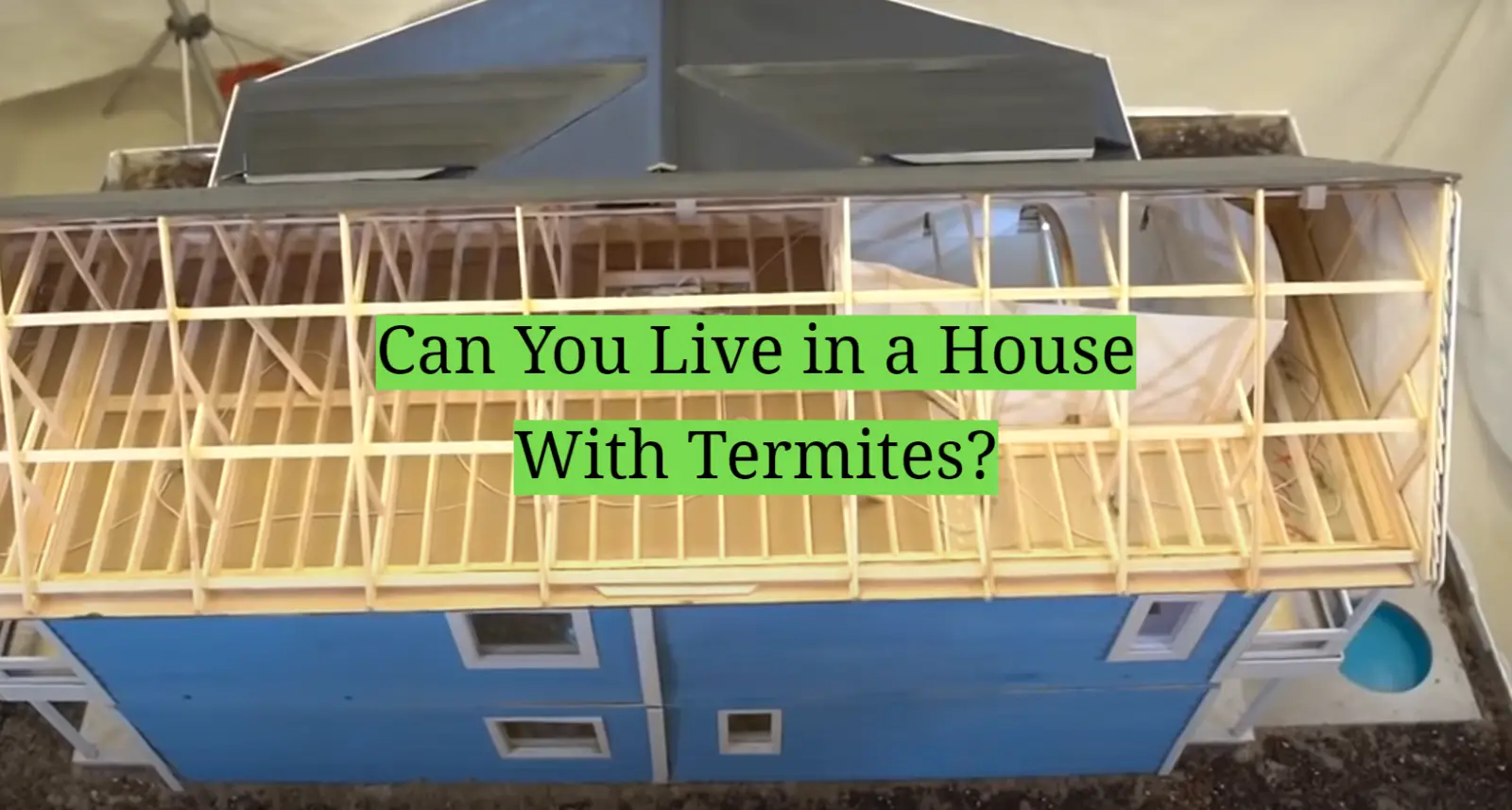

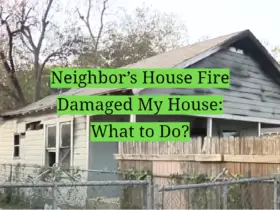


Leave a Reply